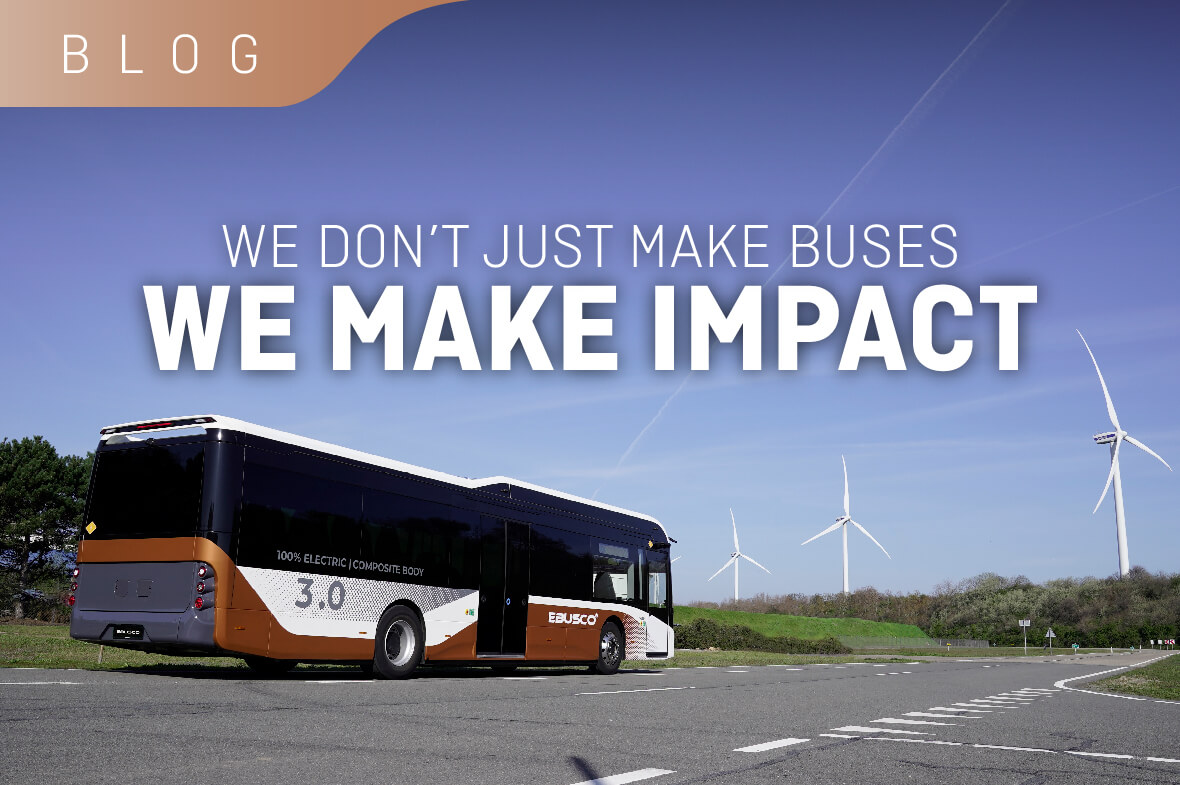Opportunities to contribute to a more sustainable world
Officially, 2023 stands as the warmest year on record, with the concentrations of the primary greenhouse gases, CO₂ and methane, reaching record levels. As the atmosphere accumulates more greenhouse gases, they intensify heat retention, contributing to a rise in average temperatures. This trend is anticipated to persist beyond 2023, with projections indicating that 2024 will likely surpass even this record warmth.
Paris climate agreement
In 2023, the global average temperature exceeded that of the late 19th century (pre-industrial times) by almost 1.5 degrees. Back in 2015, nearly 200 countries agreed under the Paris Climate Agreement with the shared goal of constraining global warming to this 1.5 degree limit, to avoid the worst effects of global warming. To uphold our commitment to the Paris Climate Agreement, where Ebusco already played a role as the provider of zero emission bus transportation for the Dutch Royal Family during their visit in Paris, it becomes imperative to reinforce the implementation of zero emission technologies and secure a sustainable way of generating and distributing energy.
CO₂ Emission as one of the primary gases
Projections indicate that the global CO₂ emissions for 2023 are expected to total 36.8 billion metric tons from fossil fuels, marking a 1.1% increase from the previous year. It’s well-known that the world is much warmer now than 100 years ago, as humans keep releasing record amounts of greenhouse gases like carbon dioxide into the atmosphere. Those emissions come from many sectors, and this means there is no single or simple solution to tackle climate change.
Regarding the most recent review of emission distribution by sector, data from 2020 shows, road transportation singularly accounted for 12% of global emissions, making it the largest sector in terms of contribution. Consequently, if we were to electrify the entire road transportation sector and shift to a fully decarbonised electricity mix, it could potentially result in a reduction of global emissions by 12%.
More than electric driving
The recognition of electric vehicles playing a significant role in addressing climate issues is well-established. However, the often-overlooked aspect of this transition is the electricity supply required, considering that electricity generation remains a major source of pollution and an area with substantial room for improvement. Despite the increasing number of green energy generators, the current distribution systems are not adequately aligned with them.
Traditionally, we are accustomed to a consistent power supply unaffected by external factors. The shift to green power generators demands adaptability in both distribution and power deployment. Managing the irregular power supply introduces challenges, leading to surplus power when it may not be needed and shortages during peak demand. To address this issue and promote green power supply, energy storage becomes crucial for enhancing the power grid.
For this reason, Ebusco focuses not only on advancing electric driving but also on promoting green power supply through the implementation of Ebusco Energy Storage Systems. This approach aims to make electric driving more accessible and sustainable, acknowledging the importance of a reliable and adaptable power infrastructure.
 English
English  Nederlands
Nederlands  Deutsch
Deutsch  Français
Français  English (Australia)
English (Australia) 
